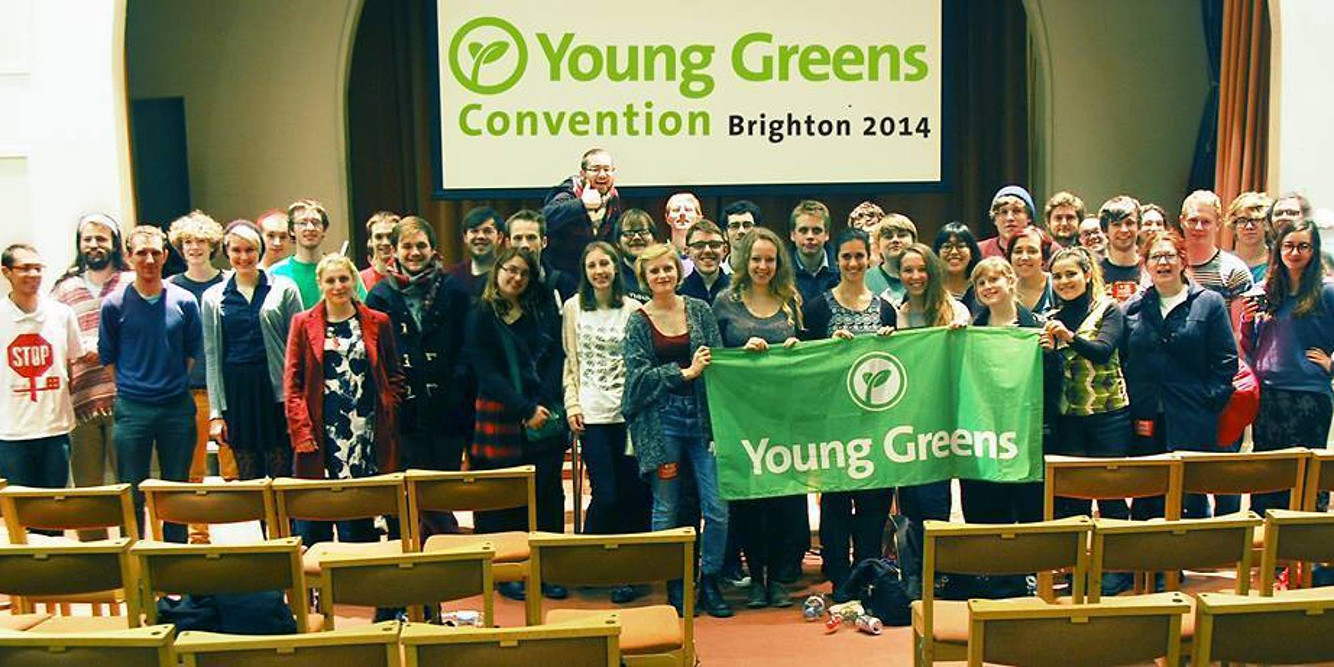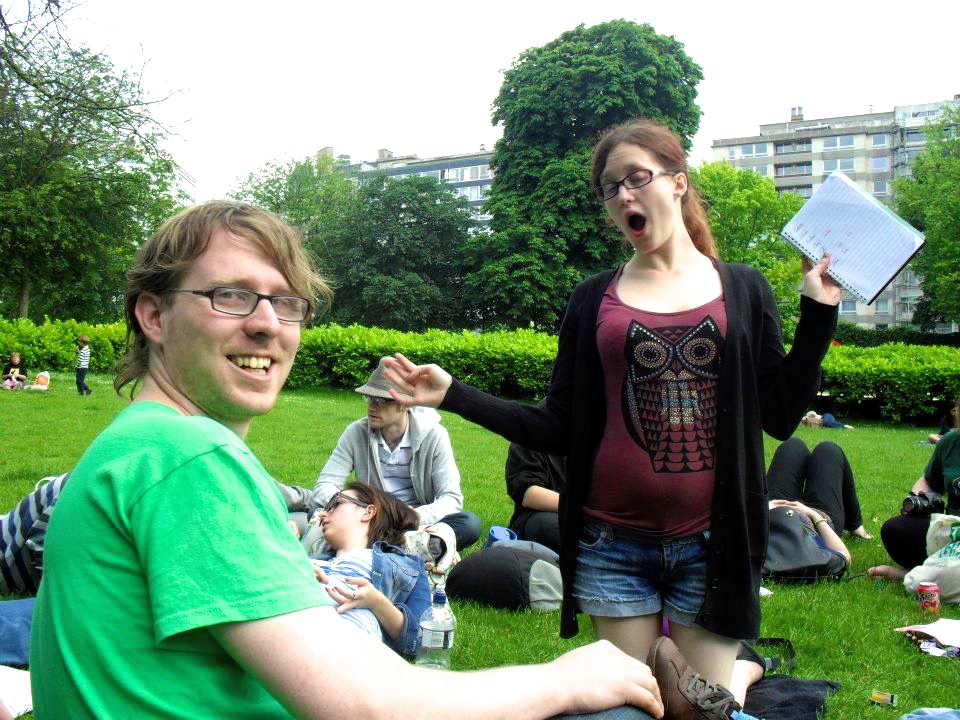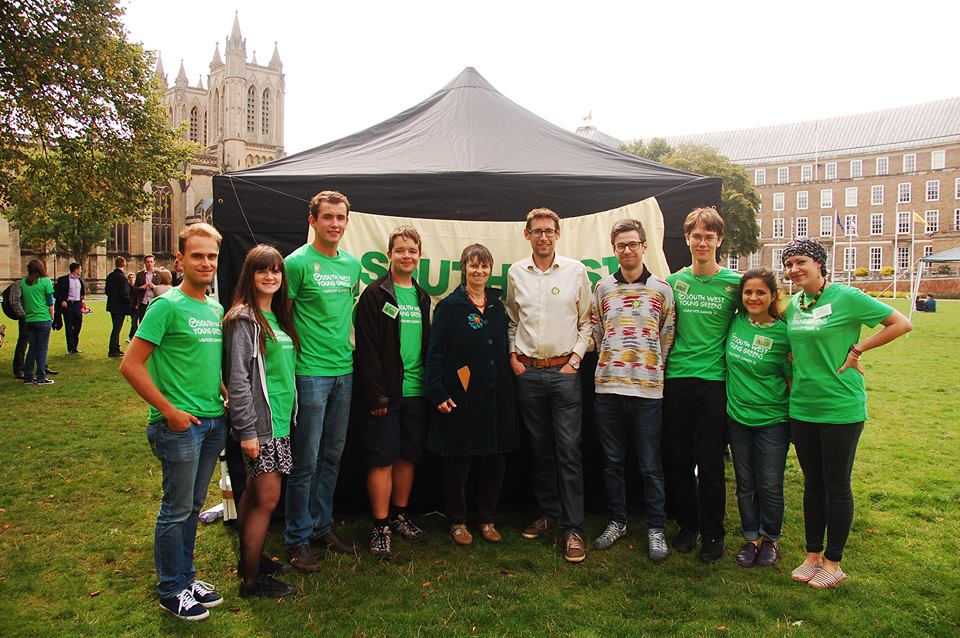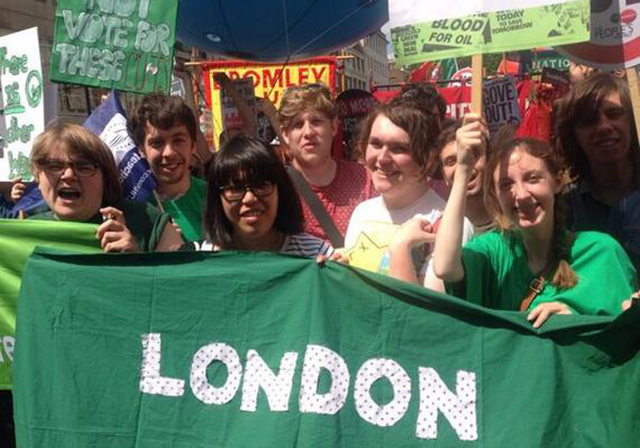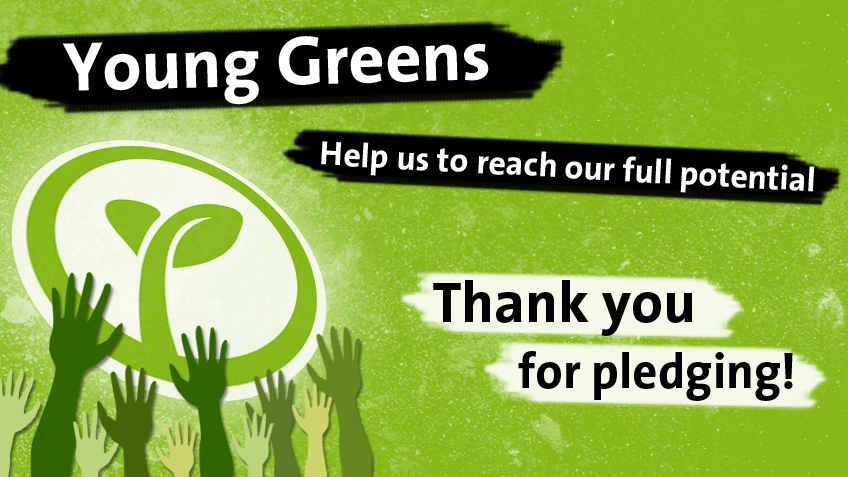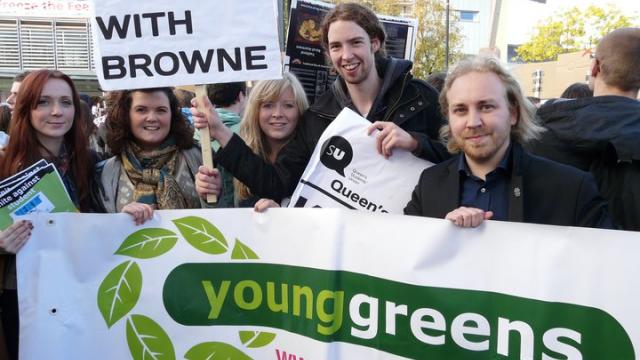
This is the fourth article in a series looking at the resurgence of the Green Party in the U.K. ahead of the May general election. Read previous articles here, here and here.
A recent poll showed the Green Party going head to head with Labour among young voters – an age group often accused of not bothering to vote at all – in the U.K.’s 2015 general election in May. Are politics here about to radically change? It depends on who actually turns out to cast their vote.
A recent YouGov poll shows the Greens winning 29% of the youth vote, a straight tie with Labour. Meanwhile, young support for the Liberal Democrats, Conservatives and the U.K. Independence Party is steadily eroding.
So what's spawning this new youth interest in the Green Party? Policies that appeal to younger voters, it seems.
Amelia Womack, deputy leader of the Green Party, told Occupy.com that the recent surge in Green support among young people has been “inspiring," and is reflecting the party's platform.
“Perhaps young people are joining us because we’re unique in offering policies like an end to tuition fees, a £10/hour Living Wage and serious action to tackle the housing crisis.”
£10/hour Living Wage
In a bid to address “persistent inequality and poverty,” the Green Party has called for the U.K.’s statutory minimum wage to be immediately replaced by the Living Wage, and for a £10 an hour minimum Living Wage to be introduced by 2020. The policy is part of the Green Party’s 2015 General Election Manifesto.
With the minimum wage currently set at £5.13/hour – a typical starting employment wage for 18- to 20-year-olds – the Greens’ call for a £10 minimum wage is naturally attractive to young people, says Womack.
Rising Tuition Fees
The Green Party has been outspoken in its criticism of the Coalition Government’s doubling of tuition fees for university. When government increased those fees in 2010, Caroline Lucas of the Green Party said a £9,000 tuition fee cap was “simply unacceptable for a country that values social mobility and inclusiveness.”
“The Greens are now the only main political party that support free education for all,” said Lucas, pointing to the second primary reason young people are suddenly more attracted to the party.
Housing Crisis
Finally, there's the intense difficulty facing first-time property buyers in Britain. “The fact is my generation has been utterly let down. It’s nigh on impossible to get on the housing ladder,” said Womack.
The Green Party has proposed a balanced mix of housing tenures to meet the “diverse needs of the community," including leasehold, individual and shared ownership, among other options.
To help young people get a foothold in the housing market, the Greens also want to introduce a mortgage bond system – something that's already proved successful in Germany, Sweden and Denmark – which would create additional opportunities for buyers of diverse backgrounds and economic situations to own property.
Changing the Tide on Youth Voting
Young people – not just here but in many countries – often stand accused of failing to vote in elections. However, alarming figures from Eurobarometer reveal that young people vote less in the U.K. than anywhere else in the European Union.
In fact, just 38 percent of people under 25 in Britain have voted in any election during the last three years. In 2010, the U.K.’s last general election, statistics showed that people over 65 were 23 percent more likely to vote than those under 25.
However, with the recent surge in popularity of the Green Party, are the tides of previously non-voting youth about to change?
Clifford Fleming, co-founder of the Young Greens, the youth and student branch of the Green Party, says it's their aim to “harness the energy and ideas of young people, and change the direction of our society towards a sustainable and just future.”
Fleming, 22, said the possibility of an alternative “swing to the left of the establishment” attracted him to the Green Party, because it "offers lots of alternatives that are different from what everyone is saying.”
“The Green Party doesn’t just think in five-year terms," he told the Guardian. "We have a much longer trajectory of trying to create a better vision – and I think lots of young people are turning to us because of this.”
Bradley Allsop, founder of the Northampton University Green Party Society, said one of his goals in establishing the group was to "bridge the gulf between young people and politics." He agrees that the promise of social innovation and change are driving Britain’s youth to support the Greens.
“Through the society we’ve tried to show that politics doesn’t have to be the same old boring PMQs and budget announcements,” Allsop told the Huffington Post.
The party's emphasis on honesty and transparency also attracted him, said Allsop. “They don’t play the PR game, or try to appease the public with populist rhetoric.”
With wages many can't afford to live on, costs of education skyrocketing, and their own inability to buy a home, young people in the U.K. appear to be engaging in politics whether they like it or not – and the Greens are the choice at hand.
“Our message to young people at this election is simple," Amelia Womack told Occupy.com. "The politics of the future doesn’t have to look like the politics of the past.”
3 WAYS TO SHOW YOUR SUPPORT
- Log in to post comments

